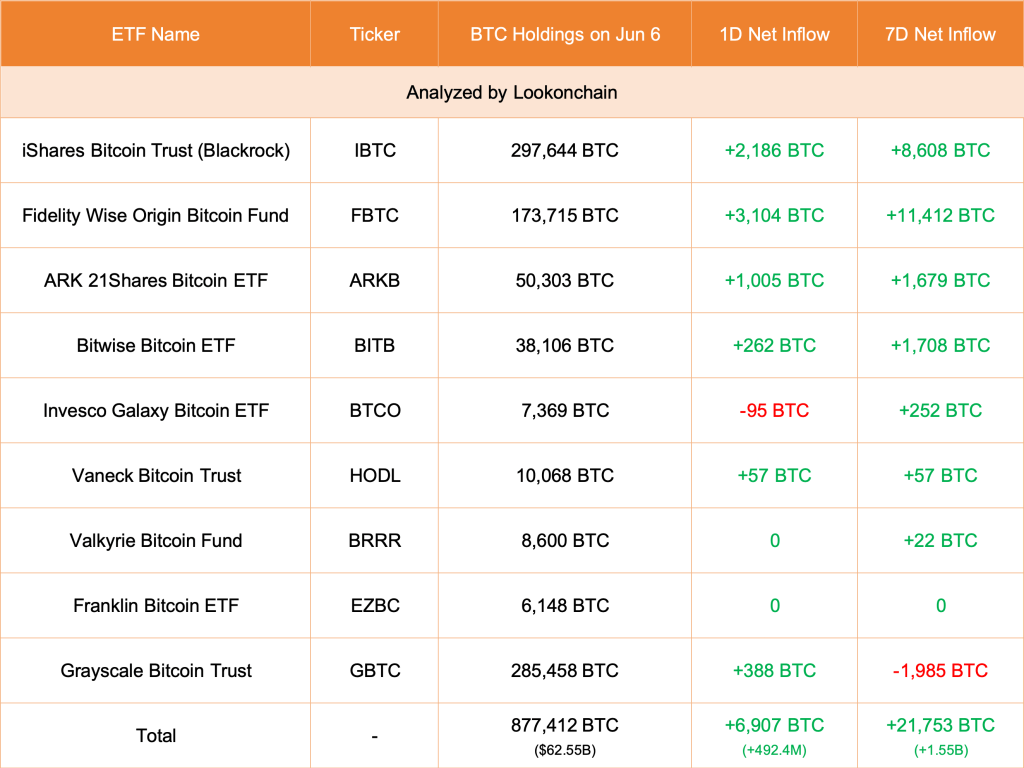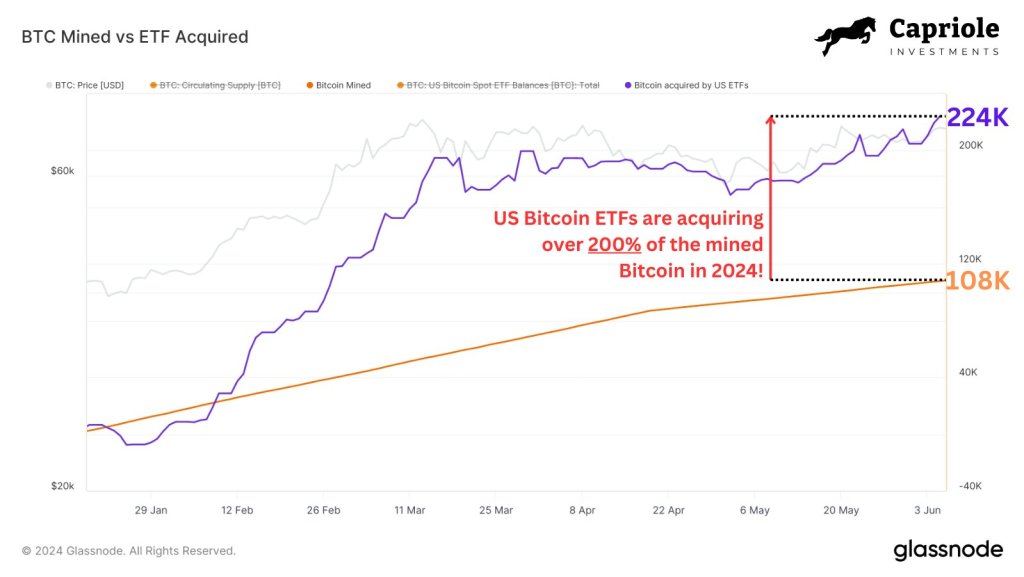VC Lists 2 Reasons Why Bitcoin Is Still Trending Below $100,000
Bitcoin traders are upbeat, confident that bulls have more legs to push prices above $72,000 and all-time highs. While the excitement about what lies ahead is primarily due to the mass inflow into spot Bitcoin exchange-traded funds (ETFs), Charles Edwards, the founder of Capriole Investments, has picked out multiple factors capping the current uptrend to $100,000.
Here’s Why Bitcoin Is Still Trading Below $100,000
In a post on X, Edwards said several factors combine to suppress gains. However, most relate to a tussle between new institutional money and a wave of long-term holder selling.
Roughly six months after the first batch of spot Bitcoin ETFs were approved by the United States Securities and Exchange Commission (SEC), billions continue to flow to these derivative products.
According to Lookonchain, all nine spot BTC ETF issuers in the United States added 6,907 BTC worth over $492 million on June 6. Fidelity added 3,104 BTC, while BlackRock bought 2,186 BTC.

Encouragingly, following sharp gains on May 20, institutions have been increasingly buying more BTC, gaining exposure through spot ETFs.
Over the past half year or so, Edwards notes that spot Bitcoin ETF issuers in the United States have been aggressively accumulating. So far, they have bought 200% of all BTC mined since their debut in January.

What this means is that there is a steady and impressive stream of institutional investment flowing to Bitcoin. BTC prices have been trending higher in response to this development, breaking above 2021 highs and printing fresh all-time highs in March 2024.
Though the uptrend is clear, the pace of expansion is discouraging. Edwards notes that more and more long-term holders are actively selling. Their share of the total supply has been shrinking since the December 2023 peak of 57%, falling to 54%, reducing 630,000 BTC in the process. This figure dwarfs the total holdings of all BTC accumulated by spot Bitcoin ETF issuers in the United States.
Spot Bitcoin ETF Inflows, USD Liquidity, And Long-term Holder Behavior Are Key
Amid this wait, the founder thinks Bitcoin could still exceed local resistance and rally to $100,000. For this level to be tested, there must be a spike in institutional appetite for BTC, even pushing daily purchases to over $1 billion.
Additionally, long-term holders must slow down their liquidation, reducing supply. If this prints out as the M2 money supply in the United States increases, the coin could surpass expectations, breaking out from the current range.


